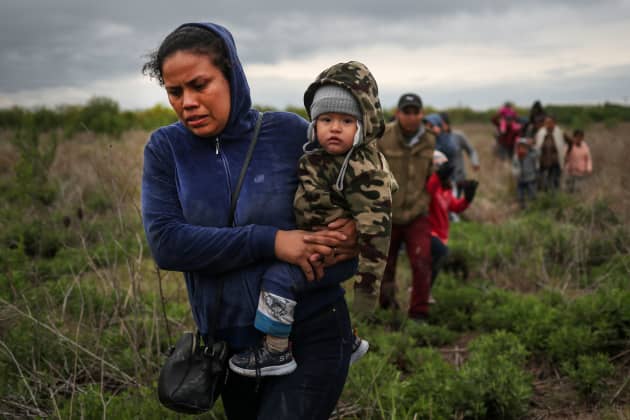Cartels may not be the primary culprits of Central American human smuggling to US, a new study says
 Human smuggling from Central American countries to the U.S. reaped revenue of between $200 million and $2.3 billion for smugglers in 2017, but transnational criminal organizations may not be the primary culprits, according to a Rand Corp. report released Monday.
Human smuggling from Central American countries to the U.S. reaped revenue of between $200 million and $2.3 billion for smugglers in 2017, but transnational criminal organizations may not be the primary culprits, according to a Rand Corp. report released Monday.
President Donald Trump recently moved to cut foreign aid to the Northern Triangle countries of Central America — Guatemala, Honduras and El Salvador — and in January claimed “ruthless coyotes and vicious cartels” are taking advantage of thousands of children who make the journey up to the U.S. border. Trump also cited human trafficking in February when he declared a national emergency at the U.S.-Mexico border, freeing up billions of dollars for his border wall.
“We learned that human smuggling involves many different types of actors and that we could not credibly distinguish most criminal organizations’ activities and revenues from those of other actors, including ad hoc groups and independent operators, that engage in human smuggling,” said Victoria Greenfield, lead author on the report and a senior economist at the nonprofit think tank. “At best, we could provide a broad range for the revenues to all types of human smugglers.”
No comments:
Post a Comment